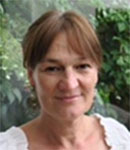 What route has your career taken to get you where you are today?
What route has your career taken to get you where you are today?
I studied psychology, then did a social work masters and then a PhD on the social origins of depression. I started my research career in psychiatry and worked on the Cognitive Functions and Aging Study (CFAS) for six years from 1991; an MRC multi-centre study on the prevalence and incidence of dementia with Prof Ian McKeith and David Kay in particular. I also worked in primary health care for a short time with Prof Chris Drinkwater before moving into Medical Education. In 1998. I started working for the Northern Deanery in the field of Medical Education with Prof van Zwanenberg. I have stayed in Medical Education as I quickly learned that research in this applied field was much more likely to create a change in practice or policy. I moved from Newcastle University with my research team in 2010 to Durham University and in 2011 was appointed to professor. While at Durham I worked with Profs Mclachlan and Hungin. We set up a research Centre which enjoyed a very good reputation. In 2015 I moved back to Newcastle University with my team now consisting of: Drs Carter, Corbett, Hesselgreaves, Kehoe, Medford and Rothwell.
What do you find most challenging about working in HE learning and teaching?
I like to provide students with proper detailed feedback and support, this is of course time consuming and finding enough time can be an issue. I also carry a To Do list around with me to remind me of what I need to do next.
Equality is something that matters to me, and lack of core funding for research staff is a major concern to me.
What’s the best thing you’ve been involved in since you started working with Newcastle University?
In November 2015 I set up a Symposium on Longitudinal Integrated Clerkships for medical students. We were able to get amazing speakers: David Hirsh (Harvard) and Paul Worley (Flinders, Adelaide) as well as our local speakers Hugh Alberti, Paul Crampton and Bob McKinley (Keele). I supervised Paul Crampton’s PhD and feel quite passionate about the potential of these long term placements to facilitate student learning but also enhance a student’s ability to see a patient holistically. The evidence indicates students on these placements become more patient centred, strengthening care and compassion.
What’s the wisest piece of advice you’ve received from a mentor or colleague?
“Work with people you like!”
Prof Zwanenberg my boss 10 or more years ago learned this from a visit to McMaster University in Canada and shared it with me.
It’s a good starting point, it builds trust, generosity and collegiality.
What’s your top educational research interest?
As stated earlier I enjoy doing research that makes a difference. I have been involved in a few studies that have changed policy and practice
If you could have dinner with 3 famous people from history who would they be?
I have selected three people who believed in equality and had a vision that was eventually realised.
Nelson Mandela, because he fought for equality but he also understood the power of forgiveness. I visited Robben Island in 2000, and heard from the guide, a former inmate, about Mandela’s reconciliation.
Martin Luther King, because he was a visionary and saw a future of equity. In 2014 I went to Martha’s Vineyard and someone pointed out the house where he wrote the speech “I have a dream”.
Emmeline Pankhust, who lead the suffragette movement and was instrumental in gaining women the vote and influencing equal rights for women. It’s hard to believe how different things were less than a hundred years ago.
Prof Jan Illing
Professor of Medical Education Research, School of Medical Education.
